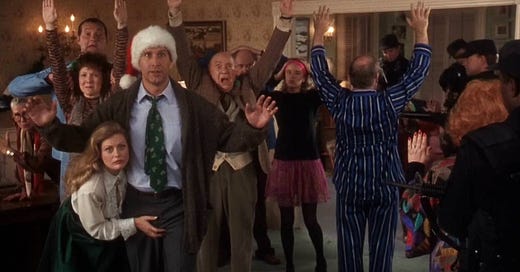Lean into holiday traditions this season.
Traditions are powerful—they make us and mend us.
Traditions are ancient, universal, and critical for our well-being. But they also fade.
Here’s why traditions matter, why they die, and how to create new ones that stick.
Traditions aren’t just human—they’re found across the animal kingdom.
But humans have more elaborate traditions because they encode hidden knowledge, build culture, and connect us to something larger than ourselves.
Four reasons traditions are so powerful for human well-being:
1. They teach us essential lessons and values
2. They strengthen social bonds and identity
3. They provide stability and reduce chaos
4. They transmit cultural norms
But traditions often fade because:
-Tech makes them irrelevant. (e.g., hunting traditions are less useful in a world of grocery stores).
-Cognitive mismatch w/ modern life (e.g., they become boring in a world of smartphones).
-Cultural disruption (e.g., families move).
-New traditions outcompete old ones.
When traditions die, don’t despair—it's an opportunity to create new ones. Three rules to success:
1. Incorporate vivid sensory details (food, music, place).
2. Make them emotionally charged (fun, joyous, memorable).
3. Tie them to a key story or values of your group.
E.g., My family’s 30-year holiday bingo tradition taught us values (e.g., fairness), bonded us, and gave us stability.
After it died, my wife and I built a new tradition: A quirky dinner and followed by off-beat games.
It highlighted what we stand for: absurdity and hilarity over conformity and formality.
TL;DR: Traditions remind us who we are and connect us to others.
When one fades, create something new and meaningful. Savor your traditions. And when it’s time, start again.
Learn more on the science and soul of traditions:


